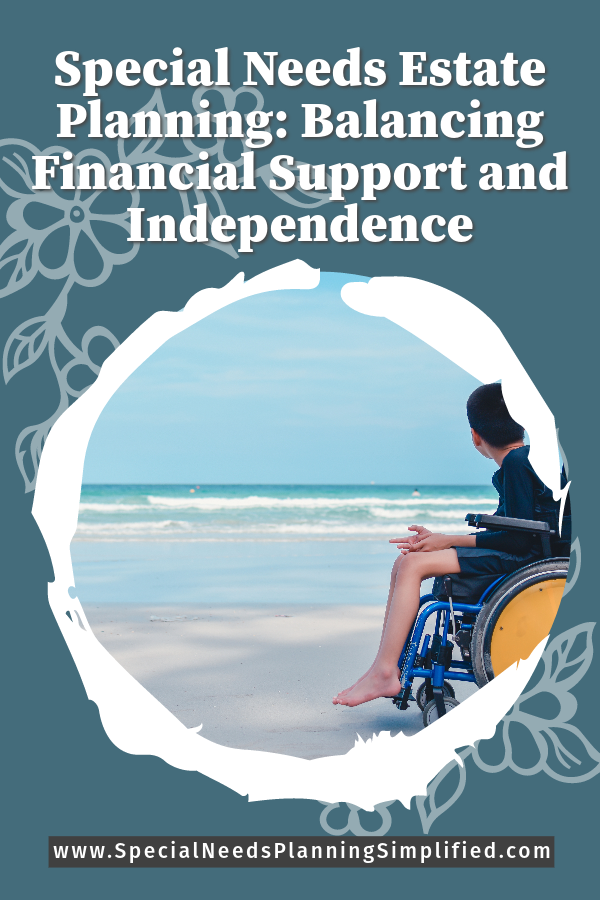Special Needs Estate Planning: Balancing Financial Support and Independence


Special needs estate planning is vital in ensuring the well-being and future of individuals with disabilities. One of the critical challenges in this process is striking a delicate balance between providing necessary financial support and fostering independence. This post will explore the strategies and considerations that can help families navigate this intricate balance in special needs estate planning.
The Importance of Balancing Financial Support and Independence
Person-Centered Planning:
The foundation of effective special needs estate planning lies in understanding the individual's unique needs, preferences, and aspirations. Person-centered planning involves engaging your loved one in discussions about their future, allowing them to voice their desires, goals, and dreams. This approach ensures that financial decisions align with their wishes while preserving their independence.
Of course, not all special needs individuals can verbalize their wishes, but a caretaker who has learned to understand their loved one through reactions and responses can make assumptions based on their accumulated knowledge of the person.
Special Needs Trusts:
Special needs trusts are a valuable tool in balancing financial support and independence. By establishing a trust, families can set aside funds to cover essential expenses without jeopardizing the individual's eligibility for government benefits like Medicaid or Supplemental Security Income (SSI). Trusts can be structured to provide for various needs while safeguarding the individual's independence and quality of life.
Supporting Employment and Vocational Goals:
Encouraging individuals with disabilities to pursue meaningful employment or vocational opportunities is essential to promoting independence. Allocating resources in the estate plan to support job training, skill development, and vocational programs can empower them to achieve financial self-sufficiency and enhance their sense of purpose.
Educational and Life Skill Development:
Financial support should extend beyond immediate needs to encompass education and life skill development. Allocating funds for specialized education, training programs, and therapies equips individuals with the tools to become more self-reliant, enhancing their independence over time.
Letter of Intent:
A letter of intent is a document that outlines an individual's preferences, routines, and specific care requirements. This document can provide caregivers and trustees with insights into maintaining the individual's quality of life while ensuring their financial needs are met. A well-constructed letter of intent contributes to preserving the individual's independence in various aspects of their life.
Regular Review and Communication:
Balancing financial support and independence is an ongoing process. Regularly reviewing the estate plan and openly communicating with the individual, caregivers, and professionals involved can help ensure the plan evolves with changing circumstances and needs.
Special needs estate planning is a complex but essential process that demands a thoughtful approach to balancing financial support and independence. Families can navigate this balance by focusing on person-centered planning, utilizing special needs trusts, supporting vocational goals, emphasizing education and life skill development, and maintaining open communication.
Ultimately, the goal is to provide individuals with disabilities the necessary resources to lead fulfilling lives while preserving their autonomy and independence. With careful consideration and the right strategies, special needs estate planning can create a lasting legacy of support and empowerment.


.jpg?width=50&height=50&name=C.Pringles-229x300-1%20(2).jpg)

.png?width=352&name=Sibling%20and%20Family%20Dynamics%20in%20Special%20Needs%20Planning%20(1).png)
